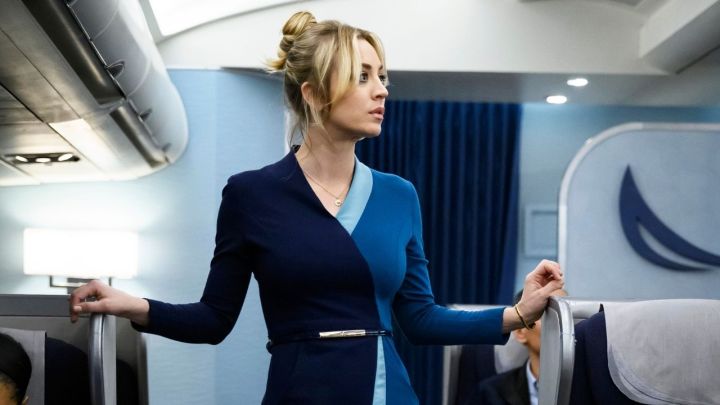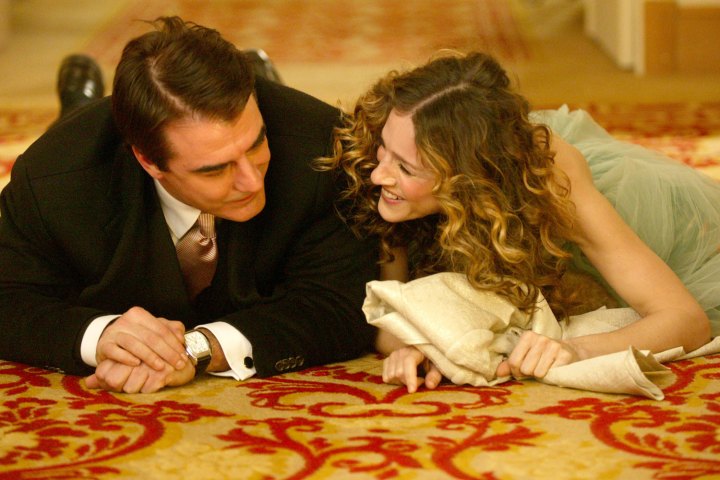We are going through the final days of the so-called golden age of the antihero. The early 2000s ushered in a wave of morally corrupt yet charming characters — Tony Soprano, Walter White, Don Draper, Dexter Morgan, Tommy Shelby — that captured audiences’ hearts despite their reprehensible actions. After all, these were liars, killers, drug lords, and mobsters, yet viewers couldn’t get enough of them. At the same time, the trope’s female counterpart, the antiheroine, began making a small but meaningful splash in television, albeit under very different circumstances.
While antiheroes enjoyed the liberty and power that came with their appalling actions, and viewers celebrated them, antiheroines suffered for their choices, and audiences judged them. While Don Draper got a free pass for identity theft and overall selfishness, Betty got condemned for sharing the same coldness and detachment. While audiences forgave Walt for drug-cooking and actual murder, they couldn’t get past Syler’s cheating. Antiheroes represent a male’s power fantasy, but antiheroines stand for the worst things a woman can be. Nowhere is this clearer than in arguably the most notorious antiheroine in television, Carrie Bradshaw.
Carrie, the original antiheroine

Carrie made her debut in 1998 when Sex and the City took the world by storm. Flawed, overly vulnerable, unapologetically selfish and self-destructive, Carrie was everything the so-called “strong female character” wasn’t. She didn’t have a high-profile job, didn’t show any particular ambition toward improving her life, and indulged in materialistic impulses. Above all, Carrie had one interest that ruled her life: Love. Carrie wasn’t afraid to shout to the world that she wanted a man in her life; per her words, she was someone who wanted “ridiculous, inconvenient, consuming, can’t-live-without-each-other love.”
Throughout Sex and the City‘s original run, critical and audience reception towards Carrie was mainly positive. Sarah Jessica Parker won four Golden Globes and an Emmy, and the series became a cultural milestone, hailed as the rebirth of the female protagonist. Things changed as the male antihero began to gain prominence, and, suddenly, fans began taking issue with Carrie.
The things that once made her so fresh and awkwardly charming became loathsome and annoying. Her openness about love turned into embarrassing neediness, and her self-centeredness became toxic. Carrie went from subversive antiheroine to the prototype of what a female character shouldn’t be. Her wide condemnations suggested the antiheroine would never get the fan acclaim her male counterpart received, but HBO, home of the morally complex characters, dared to give it another shot.
Cassie, the modern antiheroine

2020 brought The Flight Attendant as part of HBO Max’s original programming. Starring Kaley Cuoco, fresh off her 12-year stint on The Big Bang Theory, the show follows an alcoholic and reckless flight attendant who, after a black-out night, wakes up in Bangkok next to the dead body of a man who was a passenger in her previous flight.
Cassie is a frustrating, tragic, and incredibly compelling character. Bolstered by Cuoco’s tour-de-force performance and a script that never forgets just how reprehensible Cassie’s actions are and isn’t afraid to call her out for them, The Flight Attendant prevails where Sex and the City failed. Cassie is imperfect, and the show never tries to hide it; on the contrary, every episode sinks lower in Cassie’s self-destructiveness, showing how she’s the architect of her misery. Ironically, this allows Cassie to be her own rescuer, coming out of her lowest point by confronting her biggest enemy: herself. And even though Cassie comes out victorious, becoming arguably the first television antiheroine that earns and keeps the audience’s empathy, it comes with a high cost.
Like Parker before her, Cassie brought Cuoco critical acclaim. After being unfairly ignored for her scene-stealing performance in Big Bang, Cuoco earned Golden Globe, SAG, Critics Choice, and Emmy nominations for her work in The Flight Attendant, confirming that, despite mixed audience reception, antiheroines remain a coveted role to earn awards attention, mainly due to the wide range of emotions displayed. Antiheroines are among the most layered and complex characters, so why do they remain so divisive among audiences?
The role of the antiheroine

Antiheroines don’t have the luxury of indulging and taking pride in their vile, unlike their male counterparts. Indeed, an element of degradation comes with being an antiheroine; audiences need to see her go through hell and back to earn her redemption. Think of some of literature’s most prominent antiheroines, the Anna Kareninas and Madame Bovarys and Miss Havishams. They all die tragically, thus redeeming their actions in the reader’s minds. Because while we can forgive Mr. Rochester for hiding and denying his mentally ill wife or Raskolnikov for committing murder and remaining unrepentant, we can’t see past Anna’s or Madame Bovary’s unfaithfulness.
Fans hold antiheroines to a higher standard because, unsurprisingly, they hold women to a higher standard, and they will always expect some punishment for these characters. It doesn’t necessarily have to be death, but the “anti” trope requires pain, physical or emotional, to make these characters understand the dangers of their actions. That’s part of why Carrie’s character aged so badly for audiences. Sex and the City always refused to call Carrie out on her bad choices, whether it was sleeping with a married Big or demanding Charlotte sell her engagement ring to pay for her apartment.
The revival, And Just Like That…, successfully brought Sex and the City back into the mainstream, but it still refused to let Carrie learn and grow from her mistakes. Even after years of seemingly stable marriage to Big and his untimely death, all it took was one line in his will to send her back to the unhinged behavior that’s so on-brand for her. But would the antiheroine be so fascinating if she didn’t have that deranged quality? Audiences want their antiheroines bold and unhinged, but they also want them self-aware and capable.
The antiheroine’s future

The Flight Attendant acknowledges Cassie is a mess and dares the audience to empathize with this reckless woman who makes one bad choice after the next. Cuoco gives it her all, crafting a fragile and broken character that’s easy to root for, even at her lowest. The Flight Attendant may follow the classic antiheroine walk of shame, but it doesn’t allow Cassie to go down. In a refreshing twist, she thrives, coming out of her darkness and improving her situation, allowing her to enjoy the rewards of her journey. Few antiheroines have the same privilege, which hints at a brighter future for the trope.
Still, there’s no denying that Carrie walked so Cassie could fly. In fact, Carrie walked so that many modern female characters could even have a chance, and her legacy is ever-present, for better and worse. But Cassie is the next step for the modern antiheroine. She’s still on the path of messiness — indeed, the season two trailer confirms that she might be back to her old ways. “Here’s to making good choices!” the character proudly proclaims in a dream-like sequence, proving her journey is far from over. Yet, that’s the whole point of the “anti” trope: Seeing them indulge in and fight with their demons and worst impulses.
But unlike so many antiheroines before them, Cassie and Carrie keep going, adding more layers to the antiheroine. And with the second season of The Flight Attendant already launched and the recent announcement that And Just Like That… will indeed get a second season, the future seems bright for the television antiheroine, with characters like Cassie and Carrie joining Somebody Somewhere‘s Sam and The Morning Show‘s Alex and Bradley in leading the charge. So, if we’re living the last days of the golden age of the antihero, then we might be upon the dawn of something new: The golden age of the antiheroine. And honestly, it’s about damn time.



